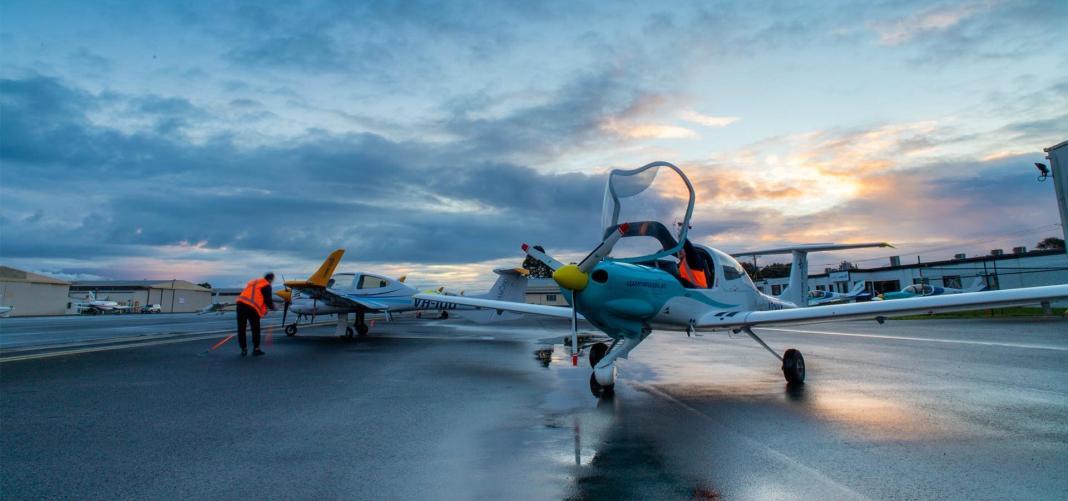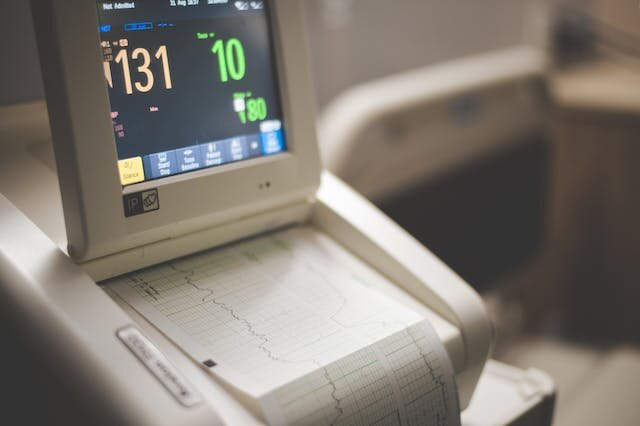The role of a pilot demands not only technical proficiency but also a commitment to maintaining optimal mental and physical fitness. The well-being of a pilot is directly linked to performance and safety, making it imperative for those in the cockpit to prioritize their health, both physical and mental.
The physical demands of piloting
Flying an aircraft places unique physical demands on pilots. Long hours spent in the cockpit, often in a seated position, can lead to issues such as poor circulation, stiffness, and muscle fatigue. To counteract these challenges, pilots need to incorporate regular exercise into their routines.
It is recommended pilots adopt a balanced exercise regimen that includes cardiovascular workouts, strength training, and flexibility exercises. Regular physical activity not only improves overall fitness but also enhances circulation, reducing the risk of conditions associated with prolonged sitting.
Cardiovascular health
The cardiovascular system is at the core of a pilot’s physical well-being. Maintaining a healthy heart and robust circulation is vital for enduring long flights and coping with the physiological stresses of flying. Pilots should engage in activities that elevate heart rate, such as running, swimming, or cycling.
Incorporate cardiovascular exercise into your routine at least three times a week. This not only supports heart health but also enhances endurance, a crucial factor during extended flights.
Strength training for endurance
The demands of operating aircraft controls and managing various systems require a level of physical strength. Strength training, including weightlifting or bodyweight exercises, is essential for building and maintaining muscle strength, particularly in the core and upper body.
Flight instructors and experts recommend focusing on exercises that target the muscles used during flight, such as shoulders, arms, and core. Strengthening these areas contributes to better control and reduces the risk of fatigue during flights.
Flexibility and mobility
Maintaining flexibility is key to preventing injuries and ensuring a pilot’s ability to maneuver comfortably in the cockpit. Stretching exercises and activities that promote joint mobility should be integral to a pilot’s fitness routine.
Prioritise dynamic stretching before flights and static stretching post-flight. This helps in preventing muscle stiffness and enhances overall flexibility.
Stress management
Piloting is a high-stress profession, with the responsibility of ensuring the safety of passengers and crew. Effective stress management is crucial for maintaining mental clarity and focus during flights.
Incorporate stress-relief techniques such as meditation, deep breathing exercises, or mindfulness into your daily routine. These practices can significantly reduce stress levels and contribute to overall mental well-being.
Quality sleep for peak performance
Adequate and quality sleep is non-negotiable for pilots. Fatigue is a significant safety concern, impacting decision-making and reaction times. Establishing healthy sleep patterns is essential for maintaining peak performance in the cockpit.
Aviation professionals stress the importance of maintaining a consistent sleep schedule, creating a conducive sleep environment, and prioritizing rest, especially before flights.
For pilots involved in long-haul or international flights, managing jet lag becomes crucial. gradually adjusting sleep schedules before departure, staying hydrated, and strategically using exposure to natural light can help pilots acclimate to new time zones, reducing the adverse effects of jet lag on sleep and alertness. Short naps during layovers can also help alleviate fatigue and enhance alertness.
Creating a conducive sleep environment is vital for pilots to achieve restorative sleep. It is advised to minimize external disruptions, such as noise and light, in the sleeping area. Using blackout curtains, earplugs, or sleep masks can help create an environment conducive to quality sleep. Additionally, maintaining a comfortable room temperature and investing in a supportive mattress and pillows contribute to a restful sleep environment.
Nutrition for energy and focus
A balanced and nutritious diet is the fuel that powers a pilot’s body and mind. Proper nutrition plays a critical role in sustaining energy levels, focus, and overall well-being. Pilots should follow a diet rich in lean proteins, whole grains, fruits, and vegetables. Stay hydrated, particularly during flights, to combat dehydration, a common issue in aviation environments.
Impact on pilot performance and safety
The connection between fitness and pilot performance is undeniable. A physically and mentally fit pilot is better equipped to handle the demands of the job, making split-second decisions with clarity and precision. Moreover, a healthy lifestyle contributes to resilience, reducing the risk of burnout and enhancing a pilot’s overall job satisfaction.
Industry professionals emphasize the correlation between fitness and safety. A fit pilot is more likely to handle challenging situations effectively, ensuring the safety of passengers and crew.
Nurturing Mental and Physical Well-being in Flight School Education
In aviation education, cultivating a deep understanding of mental and physical well-being is crucial for aspiring pilots in flight school. Flight instructors prioritize integrating lessons on optimal health into a comprehensive pilot course curriculum. This approach includes discussions on stress management, decision-making under pressure, and resilience.
Experienced instructors who have their flight instructor rating can recognize warning signs, provide resources, and foster an open dialogue creating an environment conducive to developing aspiring pilots equipped with both technical acumen and crucial mental resilience.
Physical health is equally paramount, addressed through fitness regimens tailored to aviation’s unique demands. Flight schools, employing this integrated approach, will produce well-rounded pilots ready to tackle the multifaceted challenges of the aviation industry.
The commitment to maintaining mental and physical fitness is a fundamental aspect of a pilot’s professional responsibility. Aviation professionals emphasize the importance of a comprehensive approach to health, encompassing exercise, stress management, sleep, and nutrition. By prioritizing flying fit practices, pilots can ensure not only their well-being but also the safety and success of their flights.
You may also like,
- Do You Have a Pilot Interview Coming Up? Guidance on How to Prepare
- 5 Signs You Should Book a Private Flight for Your Next Trip







